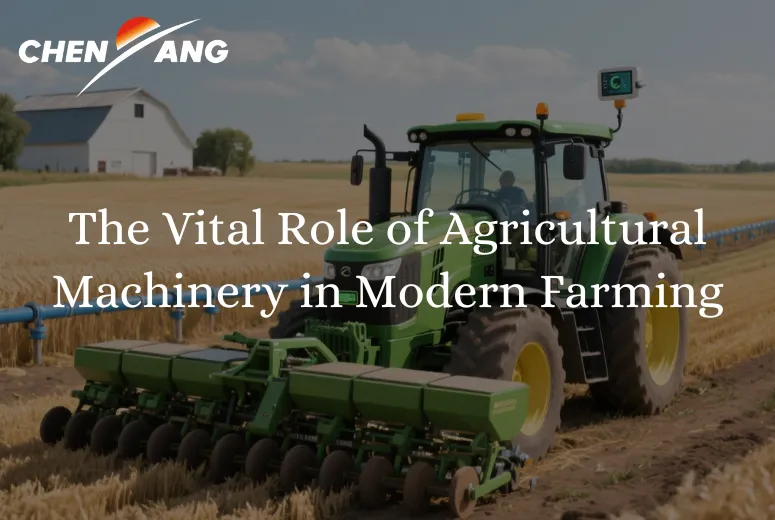The Vital Role of Agricultural Machinery in Modern Farming
Agricultural Farm Machinery forms the cornerstone of modern agricultural practices, enabling farmers to tackle diverse tasks with enhanced efficiency and precision. From land preparation to crop harvesting, these mechanized tools have revolutionized traditional farming methods, reducing manual labor demands while increasing productivity. In today’s agricultural landscape, the availability of various Agricultural Farm Machinery allows farmers to perform a range of tasks more efficiently and effectively, ultimately boosting productivity and crop yields across different farming scales.
Agricultural Hand Tools and Equipment remain essential companions to large-scale machinery, providing versatility for detailed and small-area operations
Tools such as hand trowels, pruning shears, and manual weeders are indispensable for tasks requiring precision, such as transplanting seedlings, trimming crops, and removing weeds in tight spaces. These tools bridge the gap between mechanized operations and delicate agricultural work, ensuring that even the most intricate tasks are performed with care. Their portability and ease of use make them valuable assets for both smallholder farmers and large agricultural enterprises, complementing the capabilities of larger Agricultural Farm Machinery.

Agricultural Implements and Machines encompass a broad category of specialized equipment designed for specific farming stages, from soil cultivation to post-harvest processing
Plows, harrows, and seed drills are key implements used in land preparation, breaking up soil, leveling surfaces, and sowing seeds at optimal depths and intervals. Harvesting machines, including combine harvesters and threshers, streamline the collection and processing of crops, reducing losses and ensuring timely gathering. These implements and machines are engineered to work in harmony with Agricultural Farm Machinery, creating integrated systems that cover the entire crop lifecycle from planting to storage.
Agricultural Irrigation Equipment plays a critical role in sustaining crop growth by ensuring efficient water distribution across farmlands
Sprinkler systems, drip irrigation lines, and water pumps are essential components that deliver water directly to plant roots, minimizing waste and maximizing absorption. Modern irrigation equipment often incorporates technology to monitor soil moisture levels, adjusting water delivery based on real-time needs. This precision not only conserves water resources but also supports healthier crop development, complementing the efforts of Agricultural Farm Machinery in optimizing yield potential.
Agricultural Machinery continues to evolve with technological advancements, integrating smart features and sustainable designs to meet modern farming challenges
Precision farming technologies, such as GPS-guided tractors and drones, are now part of the Agricultural Machinery landscape, allowing for accurate planting, fertilization, and pest control. These innovations reduce input waste, lower environmental impact, and improve overall farm management. Additionally, the development of energy-efficient machinery, including electric tractors and solar-powered equipment, aligns with global efforts to promote sustainable agriculture while maintaining the high productivity enabled by Agricultural Farm Machinery.
In Summary, Agricultural Farm Machinery serves as the backbone of modern agriculture, driving efficiency and productivity across all farming operations. Complemented by Agricultural Hand Tools and Equipment for precision tasks, Agricultural Implements and Machines for specialized stages, and Agricultural Irrigation Equipment for resource-efficient water management, the diverse range of Agricultural Machinery creates a comprehensive system that supports every aspect of crop cultivation. As technology advances, these tools continue to adapt, integrating smart and sustainable features to address evolving agricultural needs. Together, they form an essential ecosystem that empowers farmers to meet global food demands while promoting responsible and efficient farming practices.
Agricultural Farm Machinery FAQs
-
What are the key benefits of using modern agricultural farm machinery?
Modern agricultural farm machinery significantly enhances efficiency by reducing manual labor and time required for tasks like plowing, planting, and harvesting. These machines improve precision in seeding and fertilization, leading to better crop yields. Additionally, they help minimize soil compaction and reduce fuel consumption compared to older models, making farming more sustainable.
-
How does agricultural farm machinery contribute to large-scale farming operations?
Agricultural farm machinery enables large-scale farmers to manage vast fields with greater speed and accuracy. Equipment like combine harvesters, tractors with GPS guidance, and automated irrigation systems allow for uniform crop treatment and reduced waste. This scalability ensures consistent productivity, even across thousands of acres, while lowering operational costs per unit of output.
-
What types of maintenance are essential for prolonging the lifespan of agricultural farm machinery?
Regular lubrication of moving parts, timely replacement of worn-out components, and proper cleaning after use are crucial for maintaining agricultural farm machinery. Storing equipment in dry, covered areas prevents rust and weather damage. Periodic software updates for GPS and automated systems also ensure optimal performance and prevent malfunctions during critical farming seasons.
-
Can small-scale farmers benefit from investing in agricultural farm machinery?
Yes, even small-scale farmers can benefit from compact and versatile agricultural farm machinery, such as mini-tractors, handheld seeders, or small harvesters. These machines reduce physical strain, increase work speed, and improve crop quality. Many manufacturers offer affordable financing or rental options, making mechanization accessible to farmers with limited land holdings.
-
How has technology integration improved the functionality of agricultural farm machinery?
Advanced technologies like IoT sensors, AI-driven analytics, and autonomous navigation have revolutionized agricultural farm machinery. Smart tractors can now adjust planting depth based on soil conditions, while drones monitor crop health in real time. These innovations enhance decision-making, reduce resource waste, and maximize output, making farming more data-driven and efficient.
-
The Versatile Role of Backhoe Digger in Modern Construction and AgricultureNewsAug.20,2025
-
The Practical Appeal of Second Hand Vehicles in Modern TransportationNewsAug.20,2025
-
The Evolving Landscape of New Energy Vehicles in Modern TransportationNewsAug.20,2025
-
The Evolution of New Vehicles: Electric Innovations and Hybrid VersatilityNewsAug.20,2025
-
The Essential Role of Trailers in Modern Trucking OperationsNewsAug.20,2025
Popular products

























